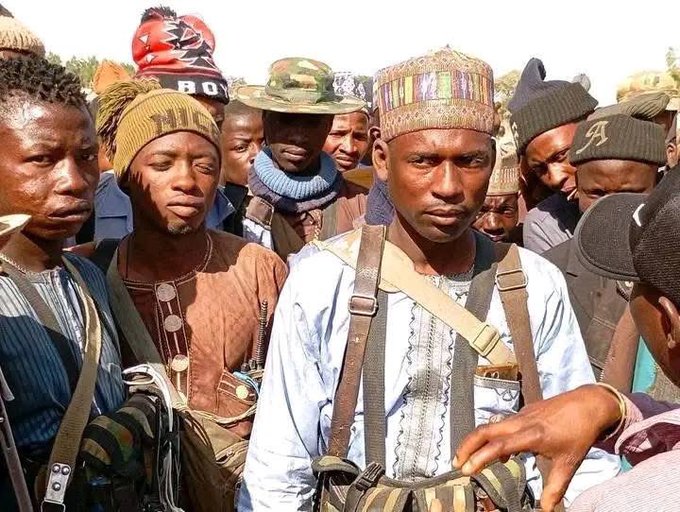Five most wanted bandit leaders, who have long terrorised Batsari, Safana, and Jibia local government areas of Katsina State, have laid down their arms following intense military operations.
The bandits handed over weapons to the military and released several hostages kidnapped during their reign of terror.
They also vowed to embrace peace and end their involvement in criminal activities.
The repentant scoundrels are named as; Abu Radda, Umar Black, Abdullahi Lankai, Jijjige, and Dabar Musa Dan Gandu, all operating from the Jibia axis.
A counter-insurgency publication focused on the Lake Chad region, Zagazola Makama, said the armed groups voluntarily disarmed.
During their surrender, they appealed to the government for alternative means of livelihood, requesting the construction of markets, hospitals, and access to clean water to aid their reintegration.
Their surrender was facilitated by the National Community for Security and Societal Advancement in Katsina State (NCSOSACK), led by Comrade Hamisa S. Batsari, representing affected communities in security dialogues.
Top military sources welcomed the surrender but insisted that the operations against unrepentant bandits would continue until total peace was restored in Katsina, Zamfara, Sokoto, and the entire North West.
On Monday, the defence headquarters (DHQ) said 800 former Boko Haram fighters who surrendered to the military are currently undergoing deradicalisation for onward reintegration into society.
The Chief of Defence Training and Operations, Emeka Onumajuru who disclosed this stated that while 129,000 Boko Haram fighters and their families had so far surrendered, only a select group had been chosen for rehabilitation.
“To get the numbers right, right now, (we have) about 129,000 surrendered Boko Haram members and their families,” Onumajuru said.
He explained that all surrendered individuals are subjected to legal scrutiny, with those found guilty facing prosecution, while others deemed fit for rehabilitation are placed in the deradicalisation programme.
He added, “Some of them are in detention facilities, some of them are in Kainji, and there is a special court that goes through all of them. Those that were found culpable face the books, and those that are going to be deradicalised go through the process, which takes about a year.”

